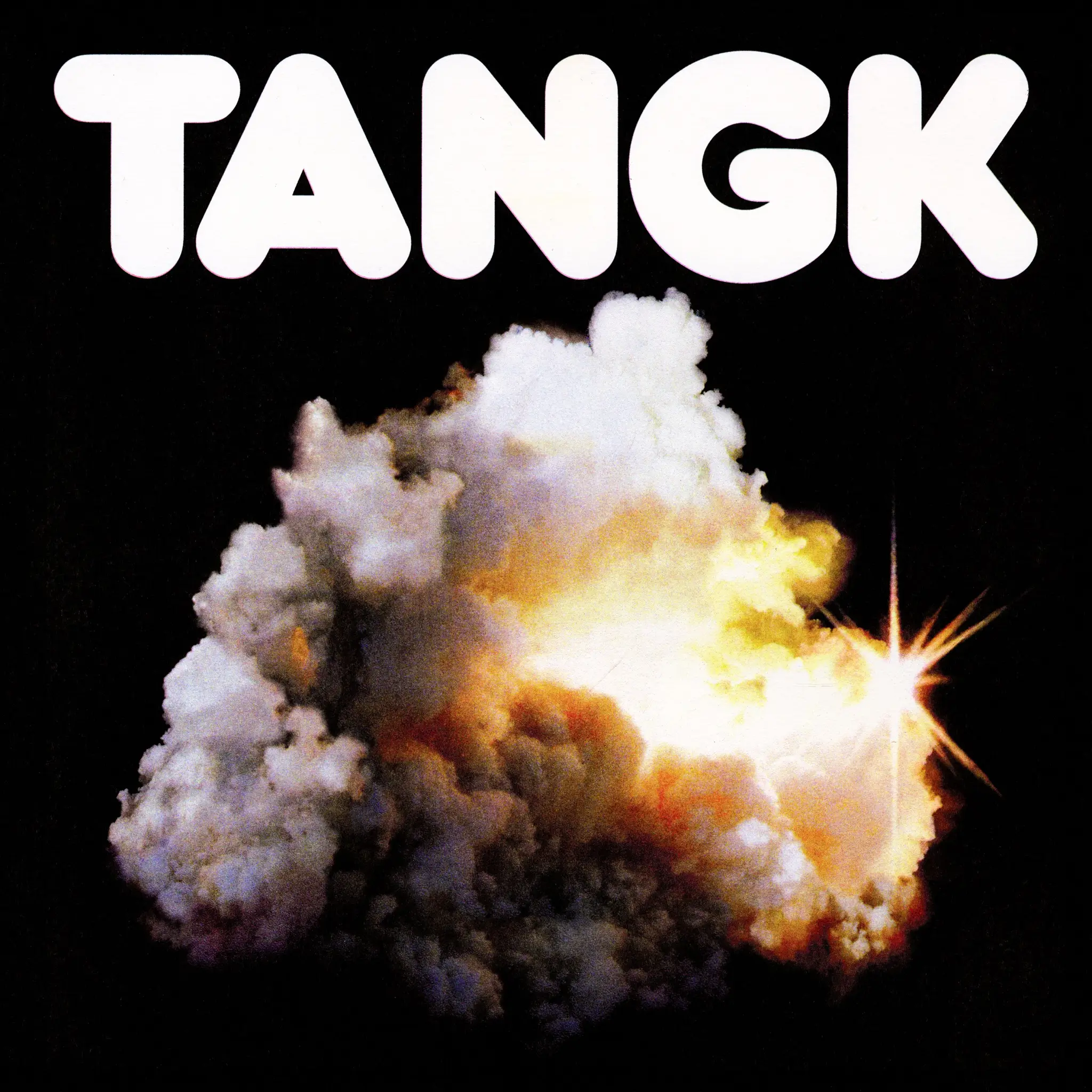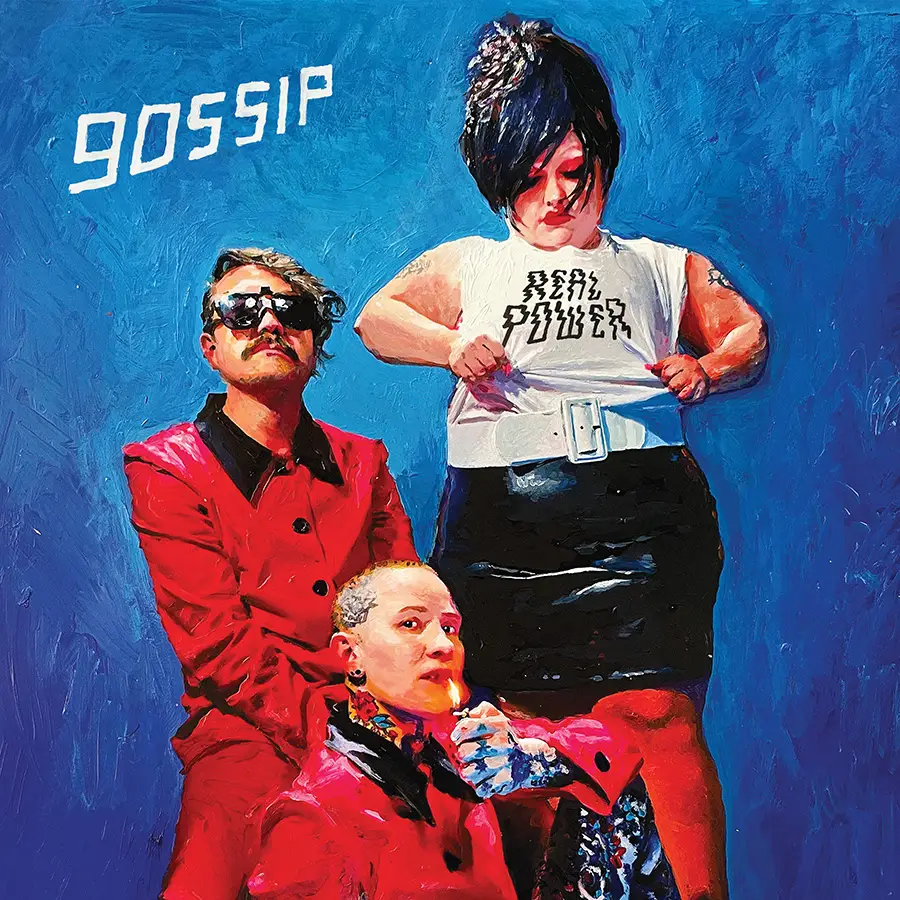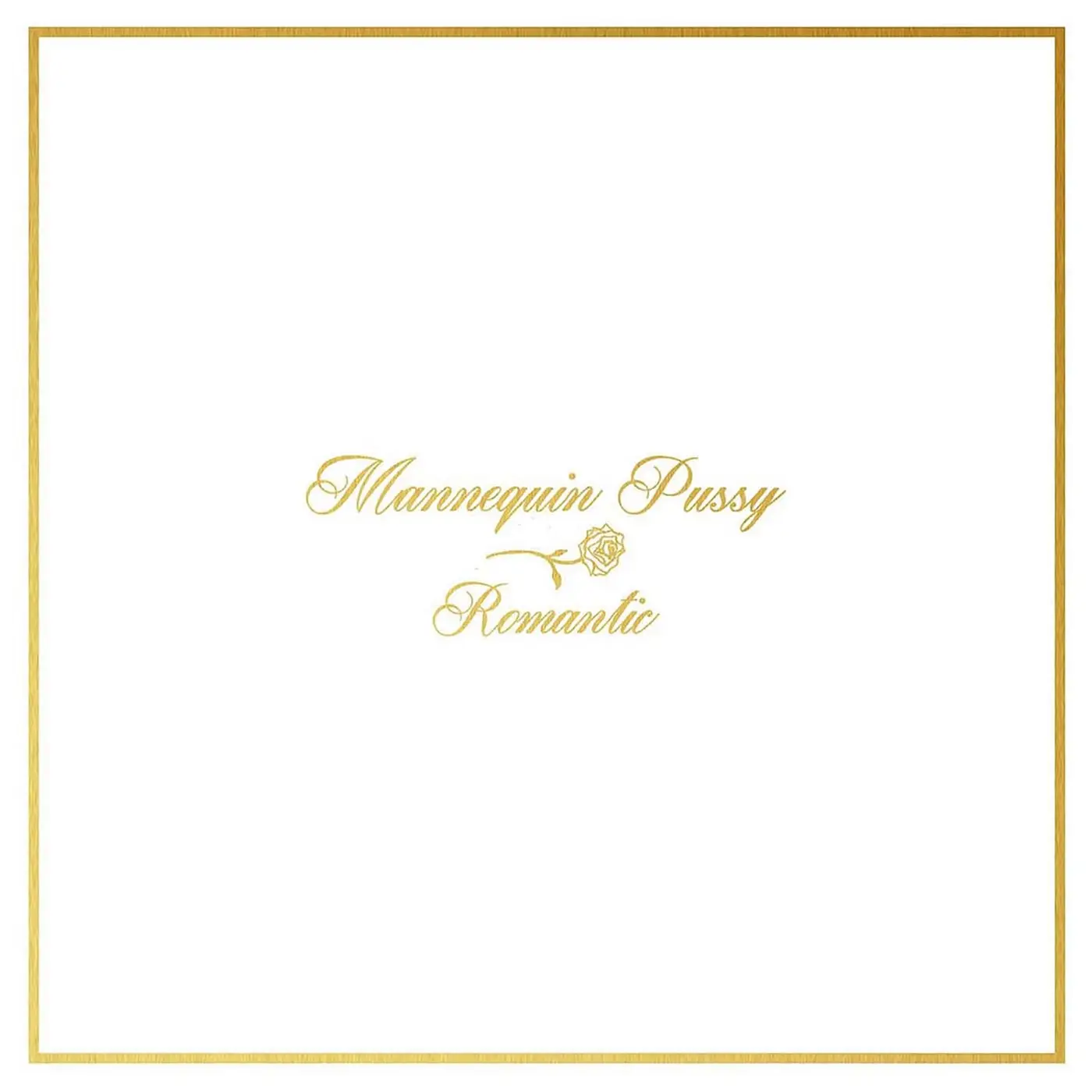Interview Simian Mobile Disco: ‘We’re Trying To Get As Far Away From Dubstep As We Can’
Derek Robertson sits down for a rather lengthy chat with the duo at Sonar.
Simian Mobile Disco are running late. They’re also a little nervous. “The plan was, with the album out, to use the summer to perfect the live show. But when we got offered Sónar, we couldn’t say no.” explains James Ford amid the oppressive heat of a late summer afternoon and a gaggle of uninterested Frenchmen lazily watching France beat Ukraine. “Our sound guy saw the lighting rig for the first time today.” chimes Jas Shaw, wearing the measured expression of a man who’s used to facing such practical difficulties. They needn’t have worried. Despite being the first airing of material from fourth album ‘Unpatterns’, a 3am set sees them deliver a glitch-free hour of their unique take on electronic house and techno, delighting and mesmerising the throng in equal measure. Before all that, of course, the duo sat down with DIY to discuss home listening, the likelihood of jungle’s return, and why you should never, ever, throw cakes at your audience.
You didn’t play Primavera Sound this year, but you’re here at Sónar. Why the change?
James: We’ve done Primavera something like two or three years in a row. We’ve played it quite a lot, and we love it to bits, but it just felt like a good time to play Sónar really. We haven’t been here since 2008 or something like that, so it’ll be nice. To be honest, the live show isn’t really ready. It’s ready at a push, so we’re a bit nervous, but when we heard [about the offer] we just thought, “Let’s do it!”
I’ve noticed that at certain traditionally indie or alternative festivals, such as Coachella or Primavera, electronic and dance acts like Skrillex or David Guetta are no longer relegated to tents, but play on the main stage or sometimes even headline. Do you feel this is a positive development for electronic music in general?
James: I wouldn’t really identify ourselves with Skrillex…
Jas: You know, it’s one of those things where there’s a lot of talk about EDM and dance music going mainstream, and it’s just…I don’t know if it’s a good or bad thing for festivals, but I feel like it’s not that much of a new thing; you had the whole superstar DJ thing that came and went before. It’s not music that we’re into, but I don’t particularly have a problem with it. To be fair, the alternative to them headlining would probably be some big, cheesy band that I wouldn’t be into either, so I don’t feel bad either way.
James: My main issue with it is, I’ve heard people claim it’s a positive thing because there’s more people focused on electronic music, so for everyone else operating in that genre, those kids will get into more underground stuff and it’ll be a bigger pie for everyone. That’s a nice positive way of spinning it, but the negative thing, especially in America where it’s more obvious than anywhere else, is that it pushes a different kind of dance music, and a different way of appreciating it. It’s more about a DJ on the stage, fist pumping, crowd surfing, throwing cakes in people’s faces…
Who on earth throws cakes at their audience?
James: There’s this funny clip of Steve Aoki throwing a massive cake into the crowd, which you should watch. It’s enlightening.
What, like a cupcake?
James: No. An actual, proper cake. Just watch it. And it’s just, literally, lowest common denominator stuff. The thing that scares me is that it pushes just one way of appreciating dance music, and that’s as you would a rock concert, but for me that’s missing a lot of the point. The way a lot of European clubs and festivals operate, where the DJ isn’t necessarily the focus – he could be off in the corner somewhere – it’s more about the music and the communal experience, usually over a longer period of time as well. That’s a very different way of approaching it, and that’s my concern: that people will think [the US version] is what dance music is, and the norm of how it should be appreciated.
Does it annoy you how quickly some of these acts have become successful? Simian’s been going for over five years now, but some of these acts have seemingly exploded overnight.
James: It’s quite a weird sort of scenario. I suppose in a way you could say we laid some of the foundations for it, but it’s also turned into something we really don’t like, and we really try to steer away from. To a certain extent, we could have maybe tried more to push into that world, but it’s something we don’t really want to be a part of, and I don’t feel it’s something we helped create.
So there’ll be no SMD dub-step bass experiments then?
James: Ha! No chance! If you listen to what we’ve been doing recently album wise, anyone will realise we’ve been doing the exact opposite, and trying to get as far away from that as we can.
‘Unpatterns’ is again very different to what preceded it, and while ‘Delicacies’ aimed at being pure, unadulterated club music, with this LP it’s like you’ve softened it up a little, and moved back towards the more populist style of ‘Sustain’ and ‘Temporary Pleasure’. Was that a deliberate move?
Jas: Yeah, to a certain extent. ‘Delicacies’ was started almost as a kind of research towards how we would do the next record, and the idea of putting it out was just a way to keep pushing forwards from there. As you say, the tracks were definitely aimed at clubs, there was no compromise towards listening at home, and on this record we definitely did want it to work in that environment. There’s no mixable intros or outros, or that kind of thing, but it is more blurry and, I’d say, warmer. Those were definitely elements that we wanted, to be a bit more human and a bit less mechanical, but there was a lot we learnt doing the ‘Delicacies’ stuff that we wanted to bring with us.
Is it possible to come up with music that can straddle the pure club feeling of ‘Delicacies’ and the more popular ‘banger’ anthems of your earlier work, without losing what makes the music function so well at both those extremes? Doesn’t a compromise lose some essential element?
James: That’s a good question, and while we don’t really know the answer, we’re trying to explore the boundaries between those two extremes. There are definitely things that make a club track work functionally, that aren’t necessarily that appealing to listen to at home, but I think there is a way to do it. It’s hard to get something that works in both environments, and it’s the same with vocals. It’s hard to get a full vocal track that’ll work in a club, but it’s still worth pursuing that goal ‘cause sometimes, when it works, those are the best tracks.
Jas: I think that, if you go back to really early acid house and techno, that stuff doesn’t work in the sense that it’s not as compressed, and not as angular, as stuff you’d get now, but there’s a really weird edge to it, you know? Even some of the Autreche stuff, when they started off it was quite bass-ey but that “edge” existed. I take your point that you’re not making something that’s purely functional and, to a certain extent, you’re compromising away from that club sound, but I think its worth putting some of that weirdness in, and some of that detail. In clubs, detail is lost. All the nuance isn’t there as people can’t hear it, so you go for a really basic, empty, simple mix, but that’s not very rewarding at home. We’ve all grown up listening to club music at home, and you don’t necessarily want to listen to something that’s so bare. You want a bit of detail, and certainly we don’t know if that’s a bad compromise or not, but it feels like an interesting place to explore.
To what extent is that compromise affected by the fact that, for lots of people, they’re listening on their phone, laptop or PC speakers or headphones? Does that affect the thought that goes into it?
James: I was just going to say that. That’s definitely true, and it’s a worry that if you make tracks where everything is happening in the lower end, a lot of people might not even register that just because of the means of listening. Some of the detail has to go a bit higher for home listening, but there are ways around those kinds of issues, technically at least. Honestly, it varies from track to track as well. I do like to listen to club music at home, and I often do, but as you say, you need good speakers, otherwise it doesn’t make any sense.
I think on this album as well, we tried to find a balance. We didn’t want it to just be straight up, functional club music, and we did want to bring in some elements from our older albums, in a way we were happy with. I feel like we’ve arrived at a sound we’re comfortable with at this point in time, it feels like we’re proudest of this album out of all of them…probably. But as to what’ll happen next, we don’t know either. We’re still exploring all those boundaries; sometimes we get it right, sometimes we get it wrong, but that’s the point of making music.
Last year saw a big explosion in the so-called “house revival”, with artists like Rustie, the 2 Bears, and Azari & III. It seems to me this is the first instance of revisionism in electronic music, with a specific sound recycled almost verbatim with no additions, evolutions, or changes. Is that an accurate description?
Jas: If you go back to acid house, that’s been redone. Disco was the same, that kind of proggy disco was hammered in Norway…
But in terms of the mainstream, not just in the underground or some subculture, and a wholesale adoption, or ripping-off, of a specific sound.
James: Obviously there are people who make up straight-up, retro copyist records, and in a way, they’re functional. They kind of work, but they’re not that exciting. Lot’s of people are obviously taking inspiration from early acid house and the like at the moment, but then some are trying to make something new out of it as well. I think that’s always the important thing; everything’s always recycled, maybe in ever-decreasing circles, but as long as you take it to a new place and make it relevant in a new way I think it’s fine. In general, I don’t think it’s a new thing at all; it’s happened many, many times before, and it’ll happen again. I’m sure we’ll get a jungle revival pretty soon.
That would be weird.
James: I’m pretty sure it’s on the cards! I’d put money on it.
Jas: I think it’s good to focus on the recycling aspect of it. If you look at hip-hop, a lot of that was just taking old funk and disco breaks and just looping them up, and sticking them under the rap. Loads of this stuff has come around again, but it’s a case of taking something that’s there, and making something new out of it. We’ve always been really fussy about never using samples…I’m not even really sure why. It’s just one of those things, the way we make music with synths, at times it almost feels like they arrange themselves, and when you’ve got a sample, you just paste it out a load of times and think “What are we going to do with it?” It just sits there like a useless…thing. People have done this type of recycling loads, but as James says, as long as you’re pushing it somewhere new, it’s fine. Slavishly copying some 90’s house track is a waste of everyone’s time, ‘cause there are loads of those, and you could just play one of them, but if you can somehow make it relevant to what’s currently going on, then I think it’s fair play.
Do you think you’d collaborate with guest vocalists again?
James: Quite possibly, yeah. I think we’d do it a little more carefully, but we’d consider it. We enjoyed doing it in the past, but just at this particular point in time, ‘cause we were DJing a lot – we never play a lot of vocals when we DJ – our brains just weren’t really in vocal mode. The few that came through were more just snippets or loops, they were just the ones we enjoyed the most. We almost didn’t have any, but I definitely think we might do some more in the future. If something good comes along, that is.
What about Lana Del Rey? That could work. You should have a word tonight.
James: Ha! Maybe. But I must admit, for all the stick she gets, I do think ‘Video Games’ is a very good tune.
Jas: She’s a good example of the “hype machine” selling her short. If you build something up too much, then regardless of how good it actually is, people will be pissed off with it. It’s a shame, ‘cause I sort of feel that that’s bad for people.
You’ve both done so much production work for other artists over the last few years, do you ever start to wonder what exactly is your main focus, and what should take precedent?
James: Weirdly, we took on so much production that I’d say for a long period this [SMD] was a side project, with production being the day job. We made a decision, for this album, to step out of production for a bit and just focus on that and DJing. It’s been really fun and really good, as well as nice to not have to juggle lots of different projects. We’ll probably get back into stuff like that later down the line, but I think that doing one project at a time is far healthier than constantly swapping hats, as it were. It’s harder to change mindsets between projects, a lot harder than you’d think.
So it’s not easy to compartmentalise various roles?
James: I always thought it was, but looking back, maybe it isn’t! Different projects definitely do have an effect on each other, in the way you approach something, or in your mood, and it’s tricky. It’s hard to recognise at the time, which is the dangerous thing.
Jas: Even with this record, we were writing through last summer, and we decided we’d do one DJ a week, just so we could stay on top of things. And then you get asked “Oh, while you’re there, would you like to do another one? You’ll be so close?” etc and so on, which rapidly turns into three or four gigs a week. We just got so little done, ‘cause we’d get back and we’d be ruined, and I don’t know why, but it always takes a few days to get back into that headspace when you’re writing. We had one week where we didn’t have any gigs, and after a couple of days getting back into it, we just hit the ground running and got loads done. In a space of nine days we probably did more than we’d achieved in the whole summer. It’s that thing where you think you can just walk in, and be like “I know how to do this” and get on with it, but it doesn’t work like that.
A lot of times when we’re writing, we have a day where, at the end, we’re not really into anything we’ve done, nothing is jumping out at us, and both of us think it’s been a waste of a day and get down on ourselves. But you come in the next day, and after a couple of hours, with exactly the same set up, it suddenly comes together, and it’s ace. It just took one thing to happen, and then you’re away. On one level, you think “That only took two hours” but actually it didn’t. It took all that previous time of faffing around and trying all these different options, and you can’t short-circuit that stuff. You just have to do it.
Waiting for inspiration to strike?
James: There’s a really great analogy to that I heard the other day, which I really liked. Apparently ABBA were really militant about working 9-to-5, and going into the studio every day, even if nothing was happening. And they likened writing songs to catching a bear, in that basically you have to go out to the forest, find a bear cave, and then just sit outside and wait for the bear. Sometimes you’d be sitting outside for three or four days, and eventually the bear would come out, but you still have to invest those days in waiting. I’m paraphrasing obviously, but…It makes sense, in terms of that myth of being hit by a bolt of divine inspiration. You have to work at it, and try to make something, and suddenly the pieces of the puzzle will fit together. But when that moment will come is impossible to predict.
Simian Mobile Disco’s new album ‘Unpatterns’ is out now via Wichita Recordings.
Read More
Simian Mobile Disco announce ‘Anthology: 10 Years of SMD’
The compilation is released next month.
20th September 2017, 12:00am

Simian Mobile Disco - Welcome to Sideways
3 Stars
Intended as another left turn in the production duo's esteemed career, 'Welcome to Sideways' is more a reversion than a reaction.
11th November 2016, 11:14am

Simian Mobile Disco takeover London’s XOYO for autumn / winter residency
The duo will be DJing and curating the line-ups for twelve consecutive Saturday nights.
8th September 2014, 12:00am

Simian Mobile Disco stream ‘Tangents’ from new album
First play from 'Whorl' previews a new LP out this September.
1st July 2014, 12:00am
Featuring SOFT PLAY, Corinne Bailey Rae, 86TVs, English Teacher and more!





